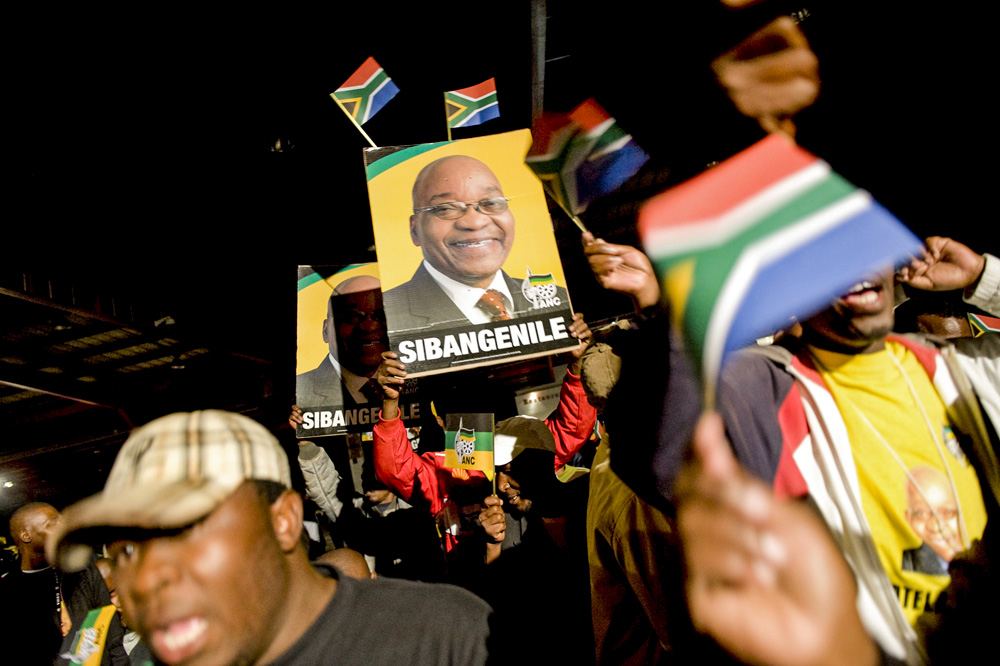Brian Hlongwa was health MEC when the proceeds of corruption are said to have benefited the ANC.
By 2008, the joke around the office water cooler, as it were, was that a large part of the money spent by the Gauteng department of health, amounting to billions of rands, constituted a fundraising exercise for the ANC.
And the chatter was that political battles were being fought with the proceeds.
These are some of the allegations contained in thousands of pages of evidence compiled by the police’s Hawks and the Special Investigating Unit (SIU). Although the allegations seem based entirely on hearsay, recounted by witnesses who themselves could face criminal charges, investigators believe they have found a solid example of the proceeds of corruption being used in an ANC election campaign.
On January 27 2009, three months before national and provincial elections, a company called Amethst paid R100 000 into a FNB business bank account controlled by a senior official of the department of health in Gauteng, an account apparently intended for fundraising, judging by its name. Amethst noted the payment as “election education”.
The payment alone breaks all kinds of rules: Amethst was part of a consortium that hoped to do more than R1-billion in business with the provincial health department, a consortium that investigators believe received outrageously preferential treatment. The donation was never declared by either party.
Proceeds of crime
Amethst is one of the companies that officials of the Asset Forfeiture Unit believe benefited from the proceeds of crime, and from which they hope to recover money.
But what happened next really raised eyebrows.
The fundraising account had been almost empty before the Amethst payment. The day after it, the account reflected a payment of R5 500, described as “ANC elections”.

Questions surround the funding for the ANC’s 2009 election campaign in Gauteng. (Paul Botes, M&G)
A flurry of similar payments followed, to T-shirt companies, caterers, photographers, a carpet-hire company, a marquee provider, a toilet-hire company, a company that prints flyers and a provider of electrical generators. Each transaction was described as “ANC Gauteng” or “ANC elections GP” or, occasionally, “ANC Gauteng election”.
The payments were small but there were many and, by the end of March, the account was starting to empty again. On March 27, Amethst made another transfer into it, this time for R200 000. More payments for the kind of services required to run an election campaign followed.
Is this clear evidence that dirty money funded the ANC’s election campaign in Gauteng?
No knowledge
On Thursday the ANC head office referred such questions to its Gauteng division. The ANC in the province, in turn, said it had no knowledge of the money.
“We did not receive money or any donation from the person who is mentioned,” its spokesperson, Nkenke Kekana, said on Thursday.
“From time to time in any election campaign, the ANC will be engaged in fundraising. We rely on our members and those who are supporters of the ANC and companies to donate money to the ANC. And many of them will request confidentiality because of the nature of the donations, therefore it is very difficult for us to talk about the subject matter.”
Kekana expressed “concern” about any SIU or Hawks investigation of ANC fundraising.
It is not clear that the ANC knew the provenance of the money apparently spent on its campaign, and there is nothing other than hints and suggestions that far larger sums flowed to or were spent for the benefit of the party.
Ambitious people
But it does appear that the businesspeople who stand accused of extensive corruption were under the impression they were funding ambitious people.
One former employee of Richard Payne, a businessperson at the centre of events, recounts how Payne showed him a spreadsheet in 2008, listing “Friends of the ANC”, or Franc.
“According to Richard, the sole purpose of Franc was to ensure the successful accession of Paul Mashatile to Parliament or the presidency,” the employee says in a sworn statement.
“Richard joked that this was another example of ‘the bottomless pit attitude’ and for the first time suggested that all money that had exchanged hands previously was part of a larger ‘fundraiser’ exercise.
“He joked that the contract [held by his company with the Gauteng department of health] itself was ‘just a fundraiser’ for the ANC.”
Obstacle
That Mashatile, now an MP and formerly a member of Cabinet, was a beneficiary of such “donations” is contradicted by evidence that, as MEC for finance in Gauteng at the time, he was an obstacle to the creation of dubious structures and the doing of dodgy deals. At one point, investigators document, other officials had to scramble to bypass Mashatile on a contract he refused to sign, which would be central in extracting cash from the province.
Mashatile could not be reached for comment.
But among suppliers to the Gauteng government the belief seemed to have been pervasive that the cash they were handing over in envelopes, or paying on invoices for services never rendered, was to fund the ANC or factions within it. And a failure to pay up could have serious consequences, the suppliers believed.
Payne would subsequently tell employees that he had been threatened with deportation after he tried to cut off, or at least slow down, the flow of money to officials. He later hired a full-time bodyguard and travelled in an armoured car.